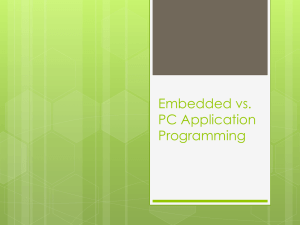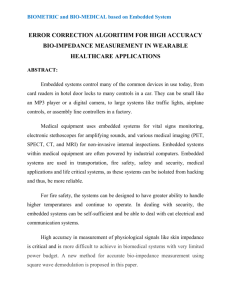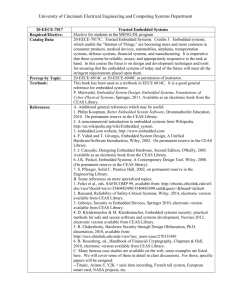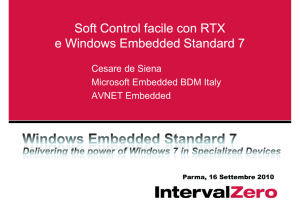CAREER: NEW PARAMETERS İN EMBEDDED SYSTEM DESİGN
advertisement
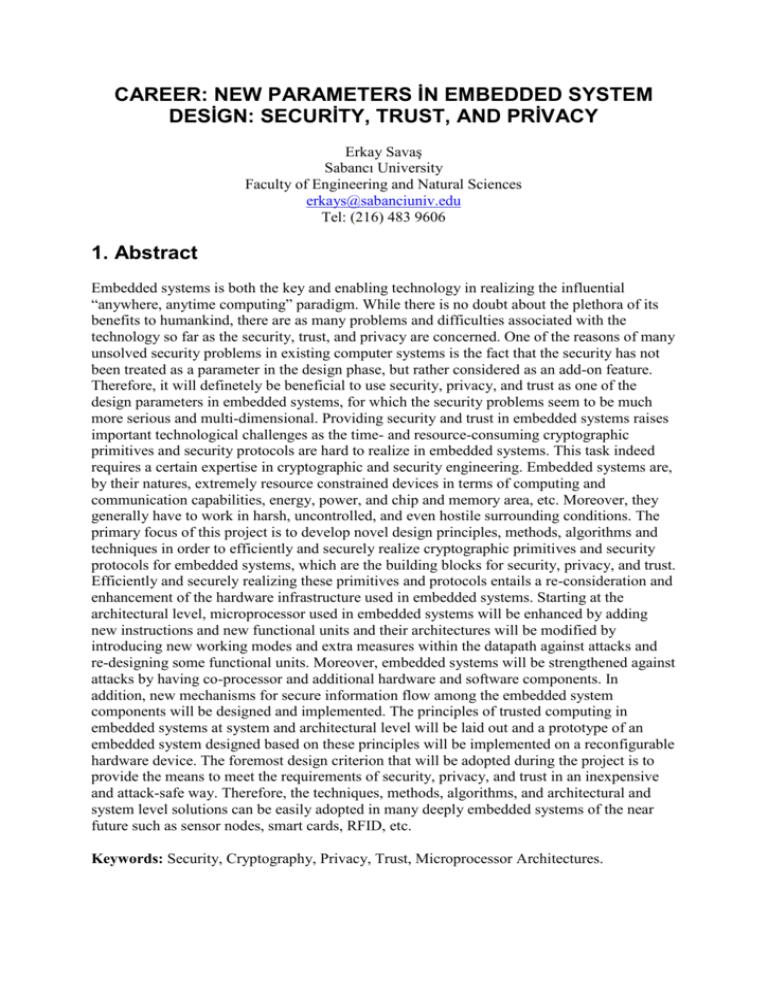
CAREER: NEW PARAMETERS İN EMBEDDED SYSTEM DESİGN: SECURİTY, TRUST, AND PRİVACY Erkay Savaş Sabancı University Faculty of Engineering and Natural Sciences erkays@sabanciuniv.edu Tel: (216) 483 9606 1. Abstract Embedded systems is both the key and enabling technology in realizing the influential “anywhere, anytime computing” paradigm. While there is no doubt about the plethora of its benefits to humankind, there are as many problems and difficulties associated with the technology so far as the security, trust, and privacy are concerned. One of the reasons of many unsolved security problems in existing computer systems is the fact that the security has not been treated as a parameter in the design phase, but rather considered as an add-on feature. Therefore, it will definetely be beneficial to use security, privacy, and trust as one of the design parameters in embedded systems, for which the security problems seem to be much more serious and multi-dimensional. Providing security and trust in embedded systems raises important technological challenges as the time- and resource-consuming cryptographic primitives and security protocols are hard to realize in embedded systems. This task indeed requires a certain expertise in cryptographic and security engineering. Embedded systems are, by their natures, extremely resource constrained devices in terms of computing and communication capabilities, energy, power, and chip and memory area, etc. Moreover, they generally have to work in harsh, uncontrolled, and even hostile surrounding conditions. The primary focus of this project is to develop novel design principles, methods, algorithms and techniques in order to efficiently and securely realize cryptographic primitives and security protocols for embedded systems, which are the building blocks for security, privacy, and trust. Efficiently and securely realizing these primitives and protocols entails a re-consideration and enhancement of the hardware infrastructure used in embedded systems. Starting at the architectural level, microprocessor used in embedded systems will be enhanced by adding new instructions and new functional units and their architectures will be modified by introducing new working modes and extra measures within the datapath against attacks and re-designing some functional units. Moreover, embedded systems will be strengthened against attacks by having co-processor and additional hardware and software components. In addition, new mechanisms for secure information flow among the embedded system components will be designed and implemented. The principles of trusted computing in embedded systems at system and architectural level will be laid out and a prototype of an embedded system designed based on these principles will be implemented on a reconfigurable hardware device. The foremost design criterion that will be adopted during the project is to provide the means to meet the requirements of security, privacy, and trust in an inexpensive and attack-safe way. Therefore, the techniques, methods, algorithms, and architectural and system level solutions can be easily adopted in many deeply embedded systems of the near future such as sensor nodes, smart cards, RFID, etc. Keywords: Security, Cryptography, Privacy, Trust, Microprocessor Architectures.
